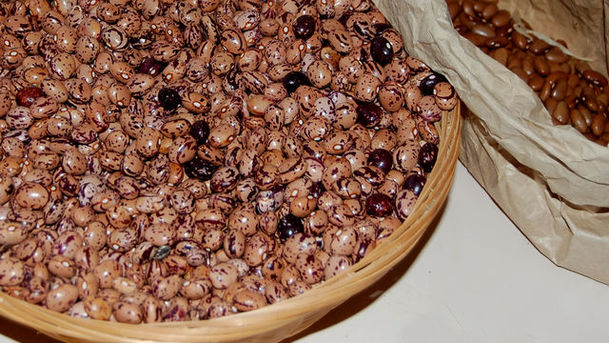Food Programme - Seeds

Since the earliest times humans have selected particular seeds to resow next season, noticing mutations that they liked and in so doing have shaped the nature of food. This shaping has never been greater than today, when technology makes our ability to shape our future food enormous, but who is to control what qualities we want in our peas or tomatoes? Sheila Dillon traces the history of plant breeding from neolithic times to today's GM era with Noel Kingsbury, author of Hybrid: The History and Science of Plant Breeding. Early examples of tasteless strawberries well suited to the railroad, and fights between farmers and millers over which wheat variety to grow, inform today's battles for control. Geoff Tansey, co-editor of The Future Control of Food, outlines the changing legal instruments which cover seeds, and which have placed ownership of seeds and genetic material increasingly in private hands, while many of our older, non-commercial breeds are now illegal to sell. European legislation means only listed varieties can be sold, with a set fee payable irrespective of volume of sales, which hit heritage and non-commercial varieties hardest. One place attempting to preserve them is the Heritage Seed Library at Garden Organic in Ryton, Coventry, who instead arrange seed swaps and a membership system to distribute these seeds. Neil Munro manages the collection. The desire to grow traditional seeds is now an international movement. Geoff Tansey visited a village seed bank in Jarkand region of India with Gene Campaign Director, Suman Suhai. And new collaborative approaches, like the participatory breeding in Rwanda, bringing farmers back into the breeding debate, may be the answer to developing seeds that suit farmers needs, and that will be able to respond to changing climates.